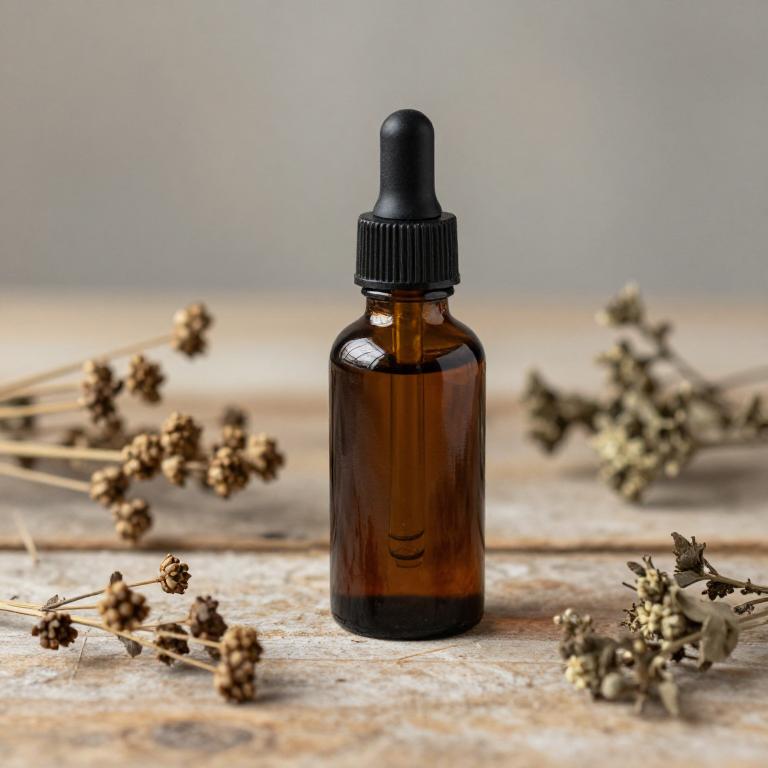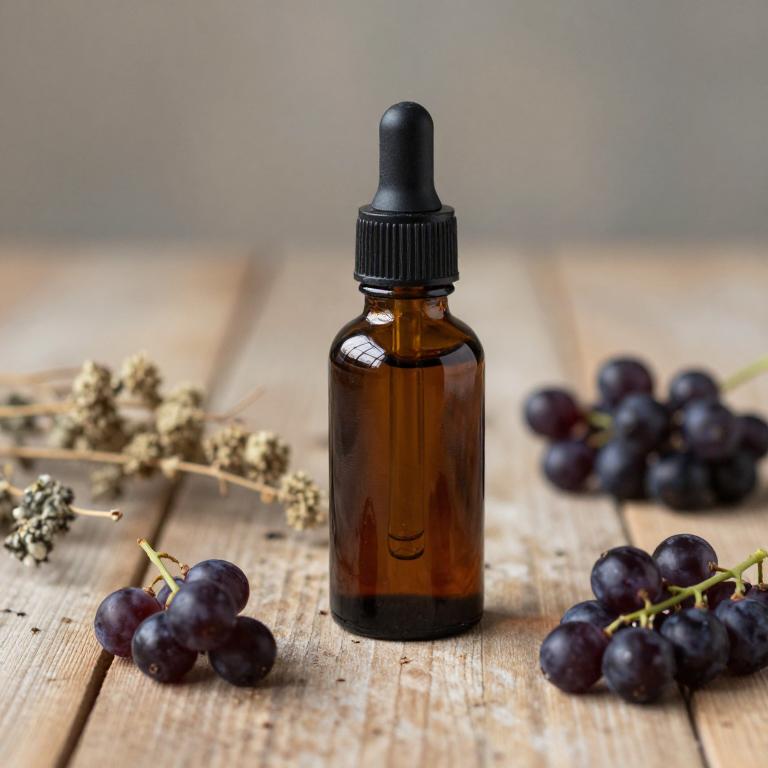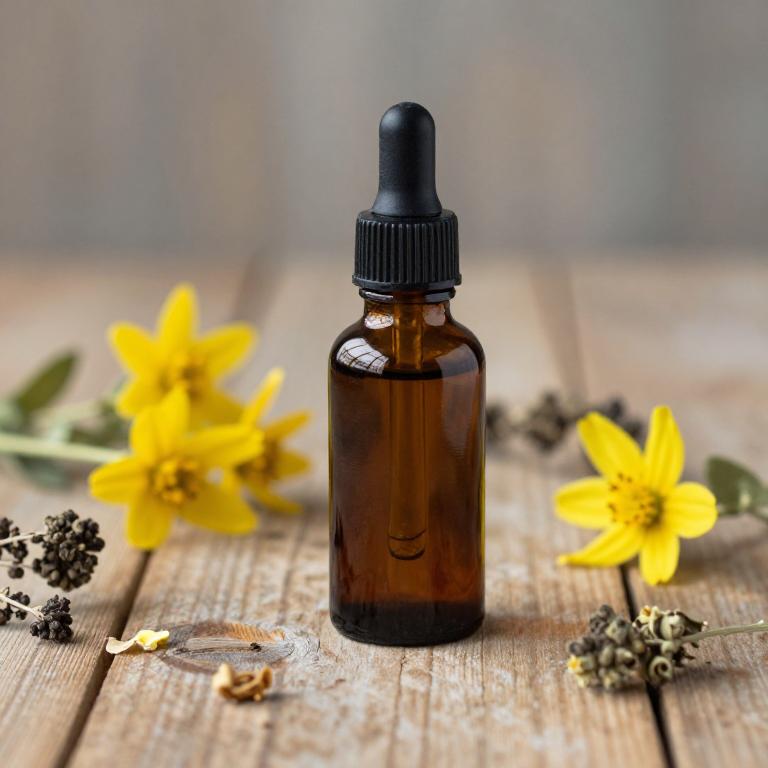10 Best Herbal Tinctures For Joint Stiffness

Herbal tinctures have gained popularity as natural remedies for alleviating joint stiffness, often containing extracts from plants such as willow bark, turmeric, and ginger, which are known for their anti-inflammatory and pain-relieving properties.
These tinctures are typically prepared by soaking herbs in alcohol or glycerin to extract their active compounds, making them easy to absorb into the bloodstream. Many individuals use them as an alternative or complementary therapy to conventional treatments, particularly for conditions like arthritis or osteoarthritis. The effectiveness of herbal tinctures can vary based on the specific ingredients and individual body response, so it is important to consult with a healthcare professional before use.
Despite their potential benefits, they should not replace medical advice or treatment for severe joint issues.
Table of Contents
- 1. Ginger (Zingiber officinale)
- 2. Turmeric (Curcuma longa)
- 3. Thistle (Silybum marianum)
- 4. Blessed thistle (Cnicus benedictus)
- 5. Field horsetail (Equisetum arvense)
- 6. Salvia (Salvia officinalis)
- 7. Yarrow (Achillea millefolium)
- 8. Common grape (Vitis vinifera)
- 9. Stinging nettle (Urtica dioica)
- 10. Mountain arnica (Arnica montana)
1. Ginger (Zingiber officinale)

Zingiber officinale, commonly known as ginger, has been traditionally used for its anti-inflammatory and pain-relieving properties, making it a popular ingredient in herbal tinctures for joint stiffness.
These tinctures are typically prepared by extracting the active compounds from fresh or dried ginger root using alcohol, which helps preserve the medicinal properties. The primary active compounds, such as gingerol and shogaol, are believed to reduce inflammation and improve circulation, offering relief from conditions like arthritis and muscle soreness. Many users report a noticeable reduction in joint pain and increased mobility after regular use of ginger tinctures.
However, it is important to consult with a healthcare professional before use, especially for individuals taking medications or with existing health conditions.
2. Turmeric (Curcuma longa)

Curcuma longa, commonly known as turmeric, has been widely used in traditional medicine for its anti-inflammatory and antioxidant properties.
Herbal tinctures made from Curcuma longa are often used to alleviate joint stiffness by reducing inflammation and improving circulation in the affected areas. These tinctures typically contain curcumin, the active compound responsible for many of the plant's therapeutic effects. When applied topically or taken orally, they may help reduce pain and enhance joint mobility in individuals suffering from conditions like arthritis.
However, it is important to consult with a healthcare professional before using these tinctures, as they may interact with other medications or have side effects in certain individuals.
3. Thistle (Silybum marianum)

Silybum marianum, also known as milk thistle, is primarily known for its liver-protective properties, but its herbal tinctures have also been explored for their potential benefits in alleviating joint stiffness.
The active compounds in silybum marianum, particularly silymarin, are believed to possess anti-inflammatory and antioxidant effects that may help reduce inflammation and oxidative stress in the joints. While research on its direct impact on joint stiffness is limited, some studies suggest that its bioactive components may support overall joint health and mobility. As a complementary therapy, silybum marianum tinctures are often used alongside conventional treatments for conditions like arthritis.
However, individuals should consult with a healthcare professional before using these tinctures, as they may interact with certain medications or have contraindications for specific health conditions.
4. Blessed thistle (Cnicus benedictus)

Cnicus benedictus, commonly known as St. Benedict's thistle, is a traditional herbal remedy that has been used for centuries to support joint health and alleviate symptoms of joint stiffness.
Its tincture form is often prepared using alcohol as a solvent to extract the active compounds, such as flavonoids and bitter glycosides, which are believed to have anti-inflammatory and analgesic properties. Herbal tinctures made from Cnicus benedictus are typically taken internally in small doses, often diluted in water or another liquid, to help reduce inflammation and improve mobility in affected joints. While some studies suggest potential benefits, it is important to consult a healthcare professional before using this herb, especially for individuals with existing medical conditions or those taking other medications.
As a complementary therapy, Cnicus benedictus tinctures may offer natural support for managing joint stiffness when used as part of a holistic health approach.
5. Field horsetail (Equisetum arvense)

Equisetum arvense, commonly known as field horsetail, is a traditional herb used in herbal medicine for its high concentration of silica and other bioactive compounds.
Herbal tinctures made from Equisetum arvense are often used to support joint health and alleviate symptoms of joint stiffness due to their anti-inflammatory and analgesic properties. The tinctures are typically prepared by soaking the dried plant material in alcohol to extract its active components, making them easily absorbed by the body. Some studies suggest that the silica in horsetail may help strengthen connective tissues, potentially reducing joint discomfort.
However, it is important to consult with a healthcare professional before using these tinctures, as they may interact with certain medications or have side effects in specific populations.
6. Salvia (Salvia officinalis)

Salvia officinalis, commonly known as sage, has been traditionally used in herbal medicine for its potential anti-inflammatory and analgesic properties.
When prepared as a tincture, salvia officinalis may support joint health by reducing stiffness and pain associated with conditions like arthritis. The active compounds in sage, such as rosmarinic acid and flavonoids, are believed to contribute to its therapeutic effects by modulating inflammatory responses in the body. To use salvia officinalis tincture for joint stiffness, it is typically diluted in water or taken with food to minimize gastrointestinal irritation.
While some studies suggest its efficacy, it is advisable to consult a healthcare professional before incorporating it into a treatment regimen.
7. Yarrow (Achillea millefolium)

Achillea millefolium, commonly known as yarrow, has been traditionally used in herbal medicine for its anti-inflammatory and analgesic properties.
Herbal tinctures made from Achillea millefolium are often utilized to alleviate symptoms of joint stiffness by reducing inflammation and improving circulation in the affected areas. These tinctures are typically prepared by soaking the dried plant material in alcohol, allowing the active compounds to be extracted over time. The bioactive components, such as flavonoids and essential oils, contribute to the tincture’s ability to soothe joint discomfort and promote joint mobility.
While generally considered safe when used as directed, it is advisable to consult with a healthcare professional before incorporating Achillea millefolium tinctures into a treatment regimen for joint stiffness.
8. Common grape (Vitis vinifera)

Vitis vinifera, commonly known as the grapevine, is a traditional herbal source used to create tinctures aimed at alleviating joint stiffness.
These tinctures are typically made by extracting the leaves, berries, or seeds of the plant using alcohol, which helps preserve the active compounds. Vitis vinifera contains resveratrol and other polyphenols, which are believed to have anti-inflammatory and antioxidant properties that may support joint health. Some studies suggest that these tinctures may help reduce inflammation and improve mobility in individuals suffering from conditions like arthritis.
However, it is important to consult with a healthcare professional before use, as they can interact with medications and may not be suitable for everyone.
9. Stinging nettle (Urtica dioica)

Urtica dioica, commonly known as stinging nettle, has been traditionally used for its potential therapeutic effects on joint health.
Herbal tinctures made from Urtica dioica are often prepared by soaking the dried leaves in alcohol, allowing the active compounds to be extracted. These tinctures are believed to possess anti-inflammatory and analgesic properties that may help alleviate symptoms of joint stiffness. The presence of compounds like flavonoids, polyphenols, and minerals in stinging nettle may contribute to its effectiveness in reducing inflammation and improving joint mobility.
While some studies suggest possible benefits, it is important to consult a healthcare professional before using Urtica dioica tinctures, especially for individuals with existing medical conditions or those taking medications.
10. Mountain arnica (Arnica montana)

Arnica montana herbal tinctures are commonly used to alleviate joint stiffness due to their anti-inflammatory and analgesic properties.
These tinctures are typically made by soaking the dried root of the plant in alcohol, allowing the active compounds to be extracted. They are often applied topically to the affected area, providing targeted relief without systemic absorption. While generally safe when used as directed, arnica can cause skin irritation in some individuals, so a patch test is advisable.
Many people find arnica tinctures effective for reducing pain and improving mobility in conditions such as arthritis and muscle soreness.